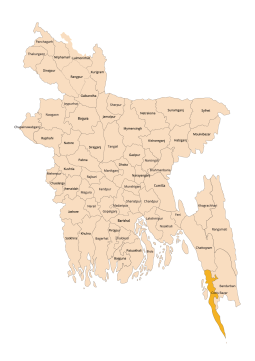
CARE, Oxfam, and Plan, in partnership with four local organisations, will deliver comprehensive and complementary services to Bangladeshi and Rohingya communities, through a Centrality of Protection approach. The consortium will meet all three priority areas identified by the Australian Government (Basic Needs, Protection, and Disaster Risk Reduction [DRR] and Resilience), with activities aligned with the objectives identified in the Rohingya Humanitarian Crisis 2023 Joint Response Plan (JRP).
The Consortium will deliver the full protection package in the JRP, with each agency drawing on their significant experience and operational capacity to provide disability-inclusive General Protection and advancement of women and girls (Oxfam), Child Protection (Plan) and services to eliminate Violence against Women and Girls (CARE). In addition, the Consortium will ensure basic needs are met (through Education and Water, Sanitation and Hygiene [WASH]) and will increase the resilience of Rohingya and host communities. The project design is tailored to the findings of the AHP III final evaluation, captured lessons learned on disability inclusion and sex-based assessment: meaning, protection is central to the program taking an intersectional approach; interventions support women and girls (including those with disabilities) to live free from violence; accessible and safe WASH facilities will meet menstrual hygiene needs; and education will support girls (including those with disabilities) to make choices about their future. The consortium partners and their networks will work across 12 camps and corresponding host communities to enable broad geographic reach, with programming specifically targeted at reaching those most in need.
DRR programming will be delivered by all three agencies, whose complementary interventions under the JRP are designed to ensure Rohingya and host communities (particularly women and girls) have increased resilience to both economic and natural disaster shocks. Partners will undertake DRR interventions to improve community resilience and will implement a series of interventions to enhance food security, foster resilience, and integrate gender-transformative1 and disability-inclusive strategies. Oxfam will concentrate on skill development initiatives, while Plan’s livelihoods package will focus on business development and work readiness.

Sectors | Camps | Host communities |
GBV | 11, 12, 13, and 16 | Surrounding host communities |
WASH | 15 and 16 | |
DRR | 13 and 16 |
Sl No | Sector | Targeted Participants |
01 | Water Sanitation and Hygiene (WASH) | 35000 |
Sl No | Sector | Targeted Participants |
| 02 | Disaster Risk Reduction (DRR) | 15000 |
Sl No | Sector | Targeted Participants |
03 | Violence against women and girls | 15000 |
© Copyright 2026 CARE Bangladesh. Powered By Bangladesh Online